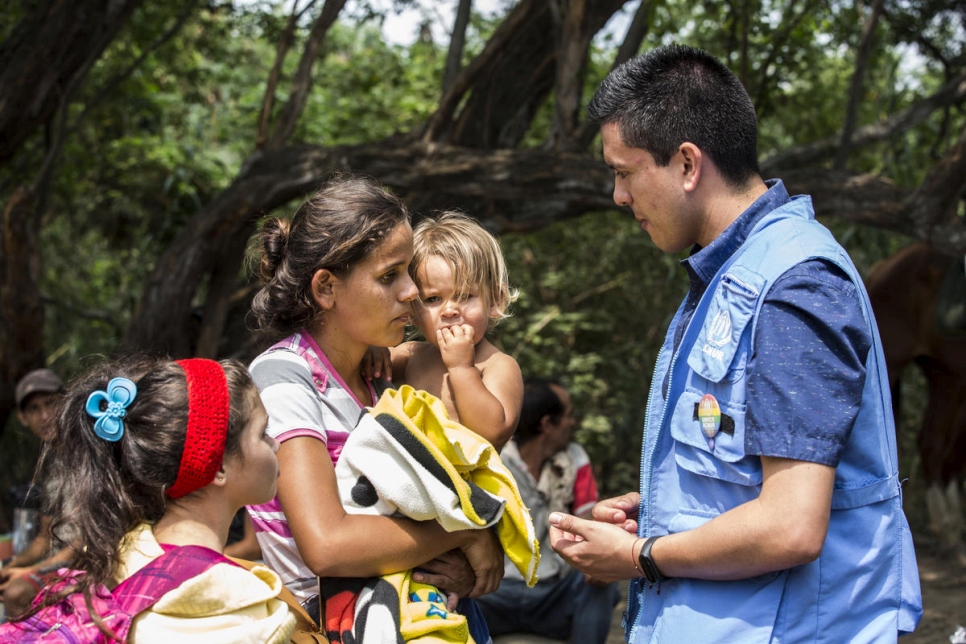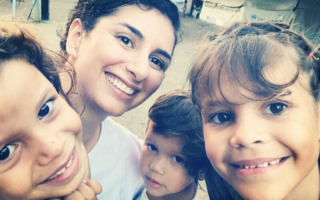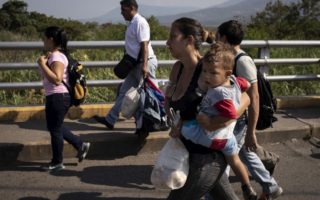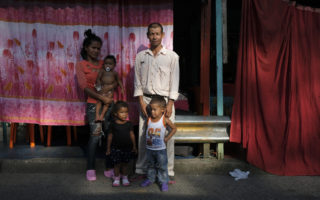
A Venezuelan mother talks with a UNHCR protection officer after crossing the border to Cúcuta, Colombia. © UNHCR/Vincent Tremeau
This is a summary of what was said by UNHCR spokesperson Liz Throssell –to whom quoted text may be attributed – at today’s press briefing at the Palais des Nations in Geneva.
Given the worsening political, economic, human rights and humanitarian situation in Venezuela that to date has seen 3.7 million people leave, UNHCR, the UN Refugee Agency, now considers that the majority of those fleeing the country are in need of international refugee protection.
In an updated guidance note issued today, UNHCR reiterates its call to States to allow Venezuelans access to their territory and provide them with proper protection and standards of treatment, highlighting the critical need for safety for people forced to flee for their lives and freedoms.
The updated guidance note aims to assist those adjudicating international protection claims by asylum-seekers from Venezuela and those responsible for setting government policy on this issue.
By the end of 2018, some 460,000 Venezuelans had formally sought asylum, the majority in neighbouring countries in Latin America. The guidance note acknowledges that the number of people leaving Venezuela poses complex challenges and that it may be impractical to undertake individual determinations of refugee status, which is why group-based recognition is recommended.
UNHCR’s guidance note advises that for certain profiles of Venezuelans at risk the 1951 Refugee Convention is applicable. In any event, the majority of Venezuelans are in need of international refugee protection, based on the wider criteria of the 1984 Cartagena Declaration applied in Latin America. This is because of the threats to their lives, security or freedom resulting from circumstances that are seriously disturbing public order in Venezuela.
Together with our partner, the International Organization for Migration (IOM), we have repeatedly welcomed the solidarity of Latin American and Caribbean governments in hosting Venezuelans under a range of legal stay arrangements. To enhance the much-needed protection of Venezuelans, UNHCR continues to urge States to harmonize these responses.
UNHCR also calls on States to ensure that Venezuelans, regardless of their legal status, are not deported or otherwise forcibly returned to Venezuela.
UNHCR, together with the International Organization for Migration, is working with Governments, other UN agencies and partners, to address the protection and basic needs of Venezuelan refugees and migrants. The two organizations have appointed a Joint Special Representative, Eduardo Stein, and jointly lead the Regional Inter-Agency Platform that ensures a coherent and consistent operational response.
Read UNHCR Guidance Note on International Protection Considerations for Venezuelans
For more information on this topic, please contact:
- In Panama City, William Spindler, spindler@unhcr.org, +507 638 278 15
- In Panama City, Olga Sarrado, sarrado@unhcr.org, +507 664 001 85
- In Geneva, Liz Throssell, throssel@unhcr.org, +41 79 337 7591
Originally posted by UNHCR on 21 May 2019





